
The Cult of Smart: How Our Broken Education System Perpetuates Social Injustice
by
Fredrik Deboer
Published 3 Aug 2020
The plan would ensure that everyone has access to quality health care without going bankrupt from accessing it. And despite the plan’s audacious goals, it has attracted attention and support from all over the Democratic party. As I write this, candidates for the 2020 Democratic party presidential nomination are endorsing single-payer health care, with Elizabeth Warren and Cory Booker staking their campaigns on the need for a single-payer health system. What would federally guaranteed health care mean for those of us trying to shed our meritocratic system? Most importantly, it would eliminate one of the central constraints on young people as they work to figure out which life to lead.
…
The Republican attitude toward government guarantees of education and health care went without saying; the Democrats, meanwhile, were content to pursue piecemeal solutions like Obamacare and vague talk of student loan forgiveness. Respectable national politicians did not associate themselves with pie-in-the-sky proposals like single-payer health insurance and free college for all. But times have changed. As I write this, the prospective candidates for the Democratic nomination for president in the 2020 election have just begun jockeying for position, with candidates like Pete Buttigieg, Cory Booker, and Elizabeth Warren already hard at work raising their profiles and staking out their policy positions.
…
(Many of those working in that capacity would come on, in such a system, as administrators in the new nationalized system, and any implementation of such a plan would involve placing those whose jobs have been eliminated into other productive employment.) But it certainly does not appear that we’re ready for full nationalization. There has been exciting progress in the realm of health care recently, though. Long dismissed as a pipe dream, a single-payer health insurance system is now being debated by many of the most prominent members of the Democratic party. In a single-payer system, government agencies fill the role currently played by health insurance companies, arranging payments of doctors, determining fees for patients, and working to responsibly divvy up scarce health care resources.

How Elites Ate the Social Justice Movement
by
Fredrik Deboer
Published 4 Sep 2023
I do think that we can make inroads and peel some of the low-information GOP voters off from that party, but as a leftist I understand that the basic task ahead of me is to turn liberals into leftists, and to help them change their orientation from symbol and language toward the concrete and material realities of our economic and political systems. Surely there are some affluent liberals who would, when push comes to shove, act in their own economic best interest and support a stingier, lower-tax system than the kind that would make single-payer health care and universal pre-K possible. But in general, such people represent the lowest-hanging fruit. If they’re more interested in putting up Black Lives Matter signs than in building a coalition that serves all working people, it’s only because of the strange and unfortunate cultural moment they find themselves in.
…
As the American sociologist and left activist Todd Gitlin once wrote, “If there is no people, only peoples, there is no left.” 8 TO FIGHT FOR EVERYONE I’m a Marxist, and though a fairly unorthodox one at this point, I would still love to see a Marxist revolution—you know, an international movement of workers rising up and taking control of the political and economic systems, distributing resources and labor based on need and organized under the principle of shared ownership of the productive apparatus of society. This appears to be an unrealistic dream, for now, so I’m left to piece together a set of lefty policy preferences that I can live with, the same as anyone else—a child tax credit, far more muscular laws protecting labor organizing, single-payer health insurance, reparations for slavery, and so on. Anyone can give you a list of political goals, and whether they succeed or not is usually out of our hands. This chapter is not going to be a list of policies that I want to see implemented or laws that I want to see passed—not predominately, at least.
…
And they too will have their say. This will, naturally, be viewed as an endorsement of incrementalism, of business as usual, as a denial of the possibility of revolution, of centrism. But that perspective is incorrect. I believe in the possibility of transformative change in my own lifetime. True single-payer health insurance in the United States, typically called Medicare for All, appears like a distant dream. The private health insurance industry naturally opposes it, as if it was passed it would mean the end of private insurance. (It is possible that we could pass single-payer and the health insurance industry would hang around, acting as an intermediary between the government and the people getting health care, as it does with Medicare today; this would be a depressing but profoundly American turn of events.)

Why Women Have Better Sex Under Socialism: And Other Arguments for Economic Independence
by
Kristen R. Ghodsee
Published 20 Nov 2018
Because this is an introductory book, there will be places in the text where I don’t go into full detail about the debates surrounding topics such as Universal Basic Income (UBI), surplus value extraction, or gender-based quotas. In particular, although I believe that they are absolutely essential, I don’t spend a lot of time discussing universal single-payer health care or free public postsecondary education, because I feel these policies have been discussed at length elsewhere. I hope readers are inspired to explore more about the issues raised within these pages, taking this book as an invitation for further exploration of the intersections of socialism and feminism.
…
This is perhaps why conservatives are so keen to tar anyone flirting with socialist ideas with the black brush of Stalinism. Desperate to discredit the political demands of “social justice warriors,” opponents will shout about the purges, famines, and Gulag, arguing that voter-supported attempts to build a universal, single-payer health care system or a national network of quality child care facilities will inevitably lead this country down a slippery slope toward totalitarianism. But after years of bullying and intimidation, the voices of the far right (although still well-funded) are starting to be drowned out by a rising tide of millennials fed up with the idea that capitalism is the only game in town.
…
Conservatives fear this growing youth disaffection with global capitalism. And they worry that American women, and especially younger millennial women, will vote for left-leaning or socialist candidates, especially when women understand that they disproportionately benefit from state regulation of markets, single-payer health care, tuition-free postsecondary education, social ownership of large enterprises like utilities or banks that are “too big to fail,” and other redistributive policies. Today, millennials and members of generation Z view democratic socialism as an answer to their many frustrations—one less libido-inhibiting than selective serotonin reuptake inhibitors.
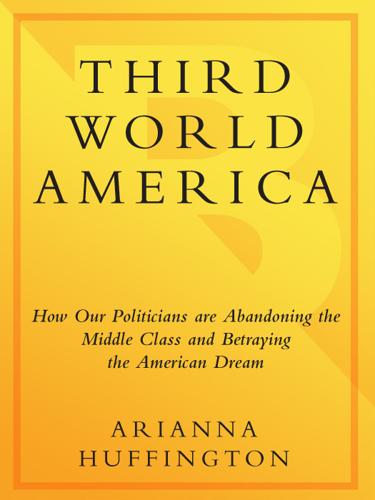
Third World America: How Our Politicians Are Abandoning the Middle Class and Betraying the American Dream
by
Arianna Huffington
Published 7 Sep 2010
But we should bring it into education reform. In a single-payer health-care plan, the federal government provides coverage for all U.S. citizens and legal residents. Patients don’t go to a government doctor—they just have the government pay the bill. And that’s how it would work with education. In a single-payer education plan, the federal government, in conjunction with the states, would provide an education allotment for every parent of a K–12 child. Parents would then be free to enroll their child in the school of their choice. In a single-payer health-care plan, all citizens would be free to select the physician and hospital of their choice.
…
In a single-payer health-care plan, all citizens would be free to select the physician and hospital of their choice. And, unlike in our education system, no one backing single-payer health care ever suggested that patients can see only a doctor in their own district or can be operated on only at the hospital down the street. If we don’t hold our health hostage to the value of our property, why do we do this with our children’s education? The annual educational cost per child—equalized for urban and suburban school districts across each state—would come from current education funding sources. When it comes to quality control, in health care the guidelines incorporated by Medicare are used to manage the quality of health-care services.

Rendezvous With Oblivion: Reports From a Sinking Society
by
Thomas Frank
Published 18 Jun 2018
But it was the news media’s attitude toward yet a third politician, Senator Bernie Sanders of Vermont, that best revealed the peculiar politics of the media in this time of difficulty and transition (or, depending on your panic threshold, industry-wide apocalypse) for newspapers. To refresh your memory, the Vermont senator is an independent who likes to call himself a democratic socialist. He ran for the nomination on a platform of New Deal–style economic interventions such as single-payer health insurance, a regulatory war on big banks, and free tuition at public universities. Sanders was well to the left of where modern Democratic presidential candidates ordinarily stand, and in most elections he would have been dismissed as a marginal figure, more petrified wood than presidential timber.
…
There is the admiration for consensus, the worship of pragmatism and bipartisanship, the contempt for populist outcry, the repeated equating of dissent with partisan disloyalty. And think also of the loser ideas this pragmatism engendered: the cheers for TARP, the indignant refusal to question the DNC, the dismissal of single-payer health care as a preposterous dream. Why are worshipers of competence often so incompetent? What I am describing, of course, is the ideology of the professional class, of sound-minded East Coast strivers, fresh out of Princeton or Harvard, eagerly quoting as “authorities” their peers in the other professions, whether economists at MIT or analysts at Credit Suisse or political scientists at Brookings.

Empire of Illusion: The End of Literacy and the Triumph of Spectacle
by
Chris Hedges
Published 12 Jul 2009
You cannot, in most instances, be a viable candidate without their blessing and money. These corporations, including the Commission on Presidential Debates (a private organization), determine who gets to speak and what issues candidates can or cannot challenge, from universal, not-for-profit, single-payer health care to Wall Street bailouts to NAFTA. If you do not follow the corporate script, you become as marginal and invisible as Dennis Kucinich, Ralph Nader, or Cynthia McKinney. This is why most Democrats opposed Pennsylvania Democratic House Representative John Murtha’s call for immediate withdrawal from Iraq—something that would dry up profits for companies like Halliburton—and supported continued funding for the war.
…
It is why the party opposed an amendment that was part of a bankruptcy bill that would have capped credit card interest rates at 30 percent. It is why corporatist politicians opposed a bill that would have reformed the notorious Mining Law of 1872, which allows mineral companies to plunder federal land for profit. It is why they did not back the single-payer health-care bill House Resolution 676, sponsored by Representatives Kucinich and John Conyers. It is why so many politicians advocate nuclear power. It is why many backed the class-action “reform” bill—the Class Action Fairness Act (CAFA)—that was part of a large lobbying effort by financial firms.
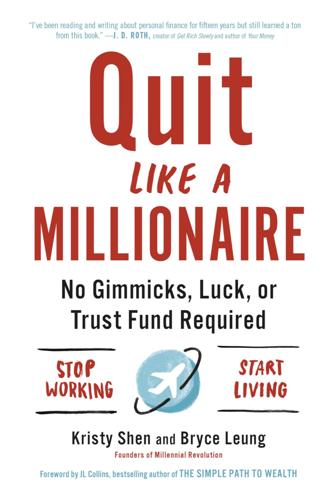
Quit Like a Millionaire: No Gimmicks, Luck, or Trust Fund Required
by
Kristy Shen
and
Bryce Leung
Published 8 Jul 2019
Expat Insurance But now I’d like to talk about my solution. Meaning, this is what we do for health insurance. It may surprise many readers that we have to do anything at all. After all, we are Canadian. Aren’t we supposed to have a gold-plated government-run single-payer health care system at our disposal? Surprisingly, no! Canadians are only eligible for our gold-plated government-run single-payer health care system if they live in Canada. Once we left Ontario for more than two years, we lost our health insurance. That’s right. We were faced with the same flop-sweat-inducing terror of being uninsured as our American friends.
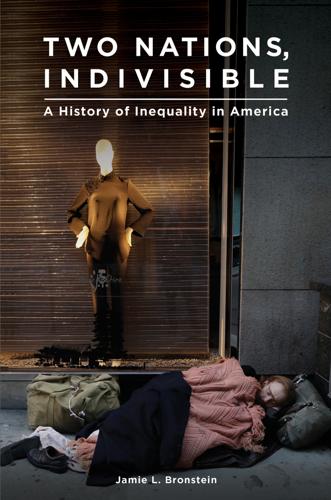
Two Nations, Indivisible: A History of Inequality in America: A History of Inequality in America
by
Jamie Bronstein
Published 29 Oct 2016
Democratic presidential hopeful Bernie Sanders made economic inequality one of the cornerstones of his unexpectedly popular campaign: “Unchecked growth—especially when 99 percent of all new income goes to the top 1 percent—is absurd … Where we’ve got to move is not growth for the sake of growth, but we’ve got to move to a society that provides a high quality of life for our people.” Sanders mentioned free college tuition and single-payer health care as important initiatives in this regard.12 At the same time that Americans seem to be grasping for answers to the problem of inequality, the history of American beliefs about, and policies toward, inequality remains understudied.13 In one of the few exceptions to this rule, Securing the Fruits of Labor (1998), James L.
…
As the United States and the Soviet Union adopted Cold War stances, even those Americans who had favored some degree of central planning during the 1930s, and particularly during World War II, backed off. Now it was widely believed that government intervention in the economy led to totalitarianism, and that economic freedom was a necessary condition for political freedom.4 Single-payer health insurance and public pensions were rejected in favor of employer-provided benefits. But later, as American industries downsized or moved overseas in the 1970s, health care and retirement would be jeopardized.5 As inequality decreased and the economy grew, prosperous America could afford political concern for “pockets of poverty” in inner cities and Appalachia.

I Love Capitalism!: An American Story
by
Ken Langone
Published 14 May 2018
When Bernie Sanders campaigned for the presidency in 2016, I’m afraid he got a lot of college kids to believe that capitalism is bad and that America is headed, or should be headed, toward something that, in my mind, resembles socialism: Guaranteed income. Free college tuition. Single-payer health care. I disagree. Strongly. Guaranteed income: Where’s the incentive to do more, or to do better, if the money you get is detached from the work you do and the effort you put into it? Free tuition: Sounds great, but where’s that money going to come from? Single-payer health care: How are you going to feel about going to a hospital with a serious condition when you have no choice about where to go? I disagree with socialism not (as you might believe) because I’m a rich guy trying to hold on to my money.

Affluenza: The All-Consuming Epidemic
by
John de Graaf
,
David Wann
,
Thomas H Naylor
and
David Horsey
Published 1 Jan 2001
The ultimate idea, promoted in some European countries, is that a certain number of hours would constitute a total paid work life, with considerable flexibility around when the hours are worked. REMOVING THE BIG OBSTACLE TO WORK SHARING Of course, one additional public policy change would help make work sharing possible. It is single-payer health care, which would relieve the cost of health care provision for American employers. Because health care is so expensive, businesses find it more cost-effective to hire fewer workers and work them longer than pay benefits for more employees. The cost of employer-financed health care is the single most important factor in reducing the international competitiveness of American firms.
…
See social norms Curing Affluenza (video), 185 D dead zones, 105–6 debt, 18–21 DeWitt, Calvin, 132, 195–96 discontent advertising and, 42, 157, 159 dietary, 120–21 malls, 13, 14 market values and, 52–53 material wealth and, 24, 39, 115–17 self-esteem and, 123–24 sex, 121–22 social isolation and, 64–66, 68–71 throw-away society and, 49–50 See also fulfillment Doherty, William, 47–48 Dominguez, Joe, 179–81 Donovan, Webster, 107–8 Don’t Buy It (website), 219–20 Douglas, Tommy, 228 Dowie, Mark, 164–65 downshifters, 181, 185–86 Dungan, Nathan, 219–20 Dunning, David, 124 Durning, Alan, 95–96, 204 E Earth in Balance (Gore), 2 Earth Institutes, 186 ecological footprint, 96–97, 241 Economic and Philosophical Manuscripts of 1844 (Marx), 135–36 economics dissatisfaction and, 120 and the environment, 170 the G.I. Bill, 147, 149 globalization, 87–88 income inequality, 82–84 poverty, 82–83, 84–87 progress and, 3–4, 7 saving money and, 21–22 of scale, 66–67 single-payer health care, 228 sustainability and, 246, 247 taxes, 229–30 voluntary simplicity and, 232–33 workweek reduction and, 227 See also social class ecophobia, 192 education commercialization, 59–61, 231 Edwards, Felicia, 86 Ehrenreich, Barbara, 50, 85 Eisenhower, Dwight D., 149 Electronic Gaming Monthly (magazine), 58 Elgin, Duane, 183, 187 employment.

Why We're Polarized
by
Ezra Klein
Published 28 Jan 2020
He famously ran against the left wing of his own party, flying back to Arkansas to preside over the execution of a brain-damaged inmate and publicly denouncing the rapper Sister Souljah. He worked with congressional Republicans to slash welfare and balance the federal budget. During his second term, he proudly declared that “the era of big government is over.” Health care offers an even starker example. In 1965, a Democratic president created a massive, single-payer health-care system for the nation’s elderly. But as liberal as Medicare was in both conception and execution, it received seventy Republican votes in the House as well as thirteen Republican votes in the Senate. Obamacare, by contrast, was modeled off Mitt Romney’s reforms in Massachusetts and built atop many Republican ideas;V it relied on private insurers for the bulk of its coverage expansion and ended up sacrificing its public option.
…
But it doesn’t beget extremism. We often assume that voters and political systems that split the difference are less extreme than those that don’t, but this idea proves incoherent upon a moment’s inspection. In 1965, most Senate Republicans joined with the Democratic Party to create Medicare, a single-payer health-care system for the elderly. In 2010, not a single congressional Republican voted for Obamacare, a health-care plan based on the system Republican governor Mitt Romney designed in Massachusetts. Under any definition, the 2010 system was more sorted and polarized than the 1965 system—opinions were better aligned by party, and fewer politicians found themselves in the middle.
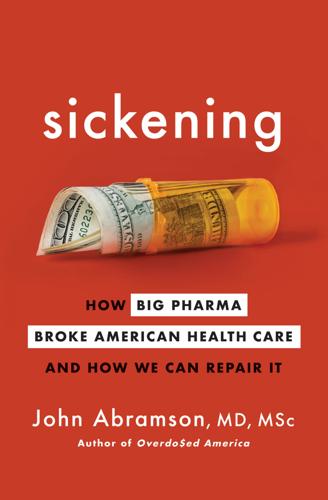
Sickening: How Big Pharma Broke American Health Care and How We Can Repair It
by
John Abramson
Published 15 Dec 2022
Many health-care progressives favor Medicare for All because it could achieve universal coverage for all Americans, cut the cost of health care by creating a consolidated purchaser with tremendous negotiating power, and save money on the wasteful administrative cost of our current disjointed hodgepodge of health-care coverage. (The administrative cost of Medicare versus private plans is 3.5 percent and 12.3 percent of plan cost, respectively.) But the inability of Vermont governor Peter Shumlin to successfully implement a single-payer health-care system similar to Medicare for All after running and winning on that platform delivered a powerful dose of reality. Vermont’s state legislature had passed the plan in 2011 with strong support from progressive health-care advocates, who saw Obamacare’s abandonment of the public option as unnecessary capitulation to the private insurance industry.
…
See also Organisation for Economic Co-Operation and Development laissez-faire capitalism, 216 mortality rate and, 101–2 social contract unraveling, 93–96, 98 technology and spending, 88–90, 102 health-care reform, xxvii clinical research focus, 209–10 clinical trial data, 212, 217 coalition for reform, 222 competitive marketing, 217–18 cost effectiveness studies, 208 direct-to-consumer (DTC) advertising, 214–15 drug company subsidiary responsibility, 217 drug cost savings, 203, 205 drug executive responsibility, 216–17 expansion of coverage, 203 federal health board, 194, 208–9, 229 health-care consumers’ role, 228–29 health-care professionals’ role, 225–27 Health Reform Summit, 194–95, 222 longevity, 201, 224, 231 “Medicare for All,” 206–7 public option, 204–6 purchasers of health care role, 227–28 scientific evidence, 207–8 health-care reform, Vermont, single-payer health care, 206–7 health insurance, 59, 74, 165, 184 medical dossiers prepared by companies, 221 health technology assessment (HTA), 169–71, 217, 218–21, 225 healthy lifestyle, 165, 186, 229 disease prevention spending, 186–87 research funding, 177–79 See also cardiovascular risk; clinical trials; diabetes healthy-user bias, 161 Healy, David, 153 Heart Protection Study, 114 hepatitis C, xiii, 182–83 HIV infection, xiii, 182 See also Atripla hormone replacement therapy (HRT), 161 Horton, Richard, 173, 175 Hrachovec, Jennifer, 7, 15 human NPH insulin.
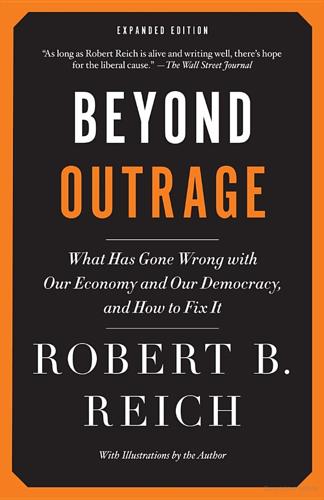
Beyond Outrage: Expanded Edition: What Has Gone Wrong With Our Economy and Our Democracy, and How to Fix It
by
Robert B. Reich
Published 3 Sep 2012
Too often, progressives become obsessed with one particular issue that becomes “their” fight, to the exclusion of everything else. Don’t get me wrong. It’s fine to fight for more efficient fuels or against climate change, or both; good to be concerned about human rights abuses or to push for gay rights or reproductive rights; worthwhile to mobilize around the needs of children, a single-payer health-care system, or cuts in military spending. But don’t be so mesmerized by any single issue—and don’t allow others to become so single-minded about their own fights—that we fail to join together on the bigger stuff that’s making it harder for the voices of average Americans to be heard on all of these issues and others: the growing concentration of income, wealth, and political power at the top; the increasing clout of global corporations and Wall Street; and the corruption of our democracy.
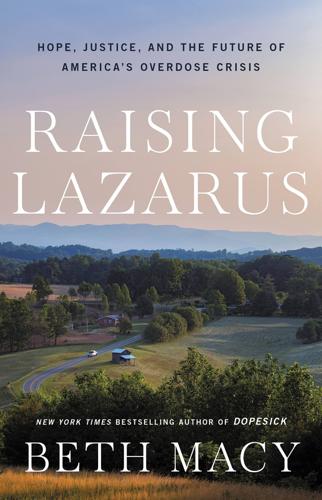
Raising Lazarus: Hope, Justice, and the Future of America’s Overdose Crisis
by
Beth Macy
Published 15 Aug 2022
It was Ronald Reagan, after all, who in 1961 tried to block the precursor to Medicare for elderly Americans, decrying it as socialism. He framed his outrage as an attack on doctors’ freedoms—while working as a spokesman for the American Medical Association, then run by Nancy Reagan’s dad. The AMA remains an opponent of single-payer health care, or Medicare for All, even as it enjoys widespread public support today. If Medicare were enacted, the future president warned, “you and I are going to spend our sunset years telling our children and our children’s children what it was like when men were free.” What often gets lost in the criticism of the War on Drugs is the fact that Nixon began his version of the war using treatment, not incarceration, as his primary weapon, a little-known story recounted in journalist Michael Massing’s 1998 book, The Fix.
…
American hospitals and clinics had been founded as acts of compassion by civic leaders and religious orders. National plans were floated to pay for it all but ultimately dismissed as socialism. Masking as “liberty,” the notion of letting the free market drive the health of our nation was cunningly employed throughout the twentieth century by pro-business politicians who continued to connect single-payer health care to socialism, knowing full well that companies and doctors alike profit more when people are forced to take personal responsibility for their health—as if the American bootstrap mythology could cure cancer. Drawing upon the research he did for his magnificent book The Hospital, journalist Brian Alexander told me: “American medicine transmogrified into big business floating on a river of trillions of dollars in cash.

Socialism Sucks: Two Economists Drink Their Way Through the Unfree World
by
Robert Lawson
and
Benjamin Powell
Published 29 Jul 2019
Marxism, Nations, and Migration • Capitalism and the Gender Binary • The Rise of Red Power and the American Indian Movement • Artists Against War • Gender and Disability • Whose Clinics? Our Clinics! Defending Abortion rights • What Do Socialists Say About White Privilege? • All Eleven Million: The Fight for Immigrant Rights • From TrumpCare to Medicare for All: The Growing Movement for Single-Payer Health Care • Socialism and Women’s Liberation • Athletes in Revolt: Black Lives Matter in Sports Today • U.S. Imperialism under Trump • From #MeToo to No More: How Can We End Sexual Harassment and Assault? • CSI Is Lying to You: Junk Science in Criminal Convictions • Queens of the Resistance: A Revolutionary Drag Show The thing is, Bob and I are also concerned with a lot of the same issues discussed in these sessions, but it’s not obvious what they have to do with socialism.
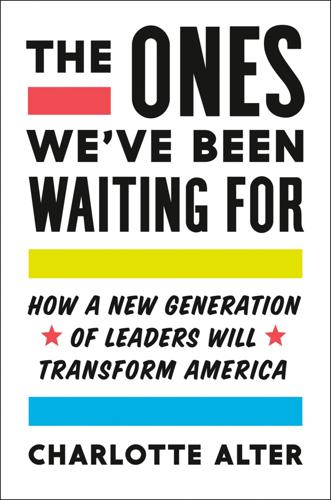
The Ones We've Been Waiting For: How a New Generation of Leaders Will Transform America
by
Charlotte Alter
Published 18 Feb 2020
Republicans were sure this provision would so infuriate young voters that they would flock to the GOP, but this never happened. Instead, most millennials disliked the bill not because it was too liberal but because it was too conservative—over the next ten years, millennials would become the loudest voices demanding single-payer health care, an evolution that would shape the politics of the 2020 campaign. Eric didn’t think the bill was perfect, but he knew it was good. And sitting outside Obama’s office, he’d learned how the game was played. He was there for the strikeouts, like when Treasury Secretary Tim Geithner fumbled the rollout of Obama’s bank rescue plan.
…
for that exact reason: Ashley Parker, “And Now, Starring in the West Wing: Ax & Lesser, The New York Times, June 12, 2009. that followed the recession: Jonathan Alter, The Promise (New York: Simon & Schuster, 2010). told Geithner in 2009: Alter, The Promise, 314. to dramatize his objection: Alter, The Promise. single-payer health care: “More Support for Single Payer Among Those Under 30 Than Older Adults,” Pew Research Center, June 23, 2017, pewresearch.org/fact-tank/2018/10/03/most-continue-to-say-ensuring-health-care-coverage-is-governments-responsibility/ft_17-06-23_healthcare_age_640px/. CHAPTER 9: FUCK THE SYSTEM three-quarter-acre pocket park: Mattathias Schwartz, “Map: How Occupy Wall Street Chose Zuccotti Park,” The New Yorker, November 18, 2011, newyorker.com/news/news-desk/map-how-occupy-wall-street-chose-Zuccotti-park. 40 percent of the active participants: Ruth Milkman, Stephanie Luce, and Penny Lewis, “Changing the Subject,” Murphy Institute, CUNY School of Labor and Urban Studies, 2013, docs.wixstatic.com/ugd/90d188_f7367c3e04de4e94a6f86f9e6b1023ed.pdf.
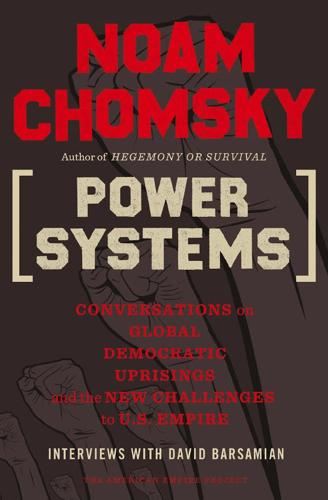
Power Systems: Conversations on Global Democratic Uprisings and the New Challenges to U.S. Empire
by
Noam Chomsky
and
David Barsamian
Published 1 Nov 2012
The basic problem we face is not a deficit but rather joblessness. A majority of the population agrees with that.17 But the banks don’t agree, so therefore it’s not discussed in Washington. We could have a reasonable health care system, like other industrial countries. Not exactly utopian. Again, fighting for that makes perfectly good sense. A single-payer health care system has a lot of popular support, but the financial institutions are against it, so it’s not even discussed. A national health care system would, incidentally, eliminate the deficit, among other things—not that the deficit is all that important. There are further goals I don’t think are unfeasible but could be revolutionary in import.
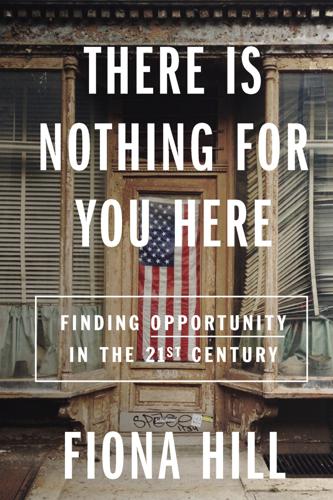
There Is Nothing for You Here: Finding Opportunity in the Twenty-First Century
by
Fiona Hill
Published 4 Oct 2021
People like my father, working as hospital porters, orderlies, and cleaners, suddenly found themselves at the tip of the spear as frontline workers alongside doctors and nurses, all of them confronting a mysterious and deadly new threat without anywhere close to the level of support that they and their patients needed. The pandemic highlighted the vital importance of finding ways to fix the overall system. Some of the commissioners recommended the creation of a socialized or universal single-payer health-care system as in the UK and Europe. For most Brits and Europeans who settle in the United States, the creation of a single-payer health-care system seems long overdue. The politics that swirl around this issue are nothing short of baffling. Why is universal access to health care an example of the “evils of socialism”? Socialized medicine exists already in the United States in the form of Medicare and Medicaid funding.
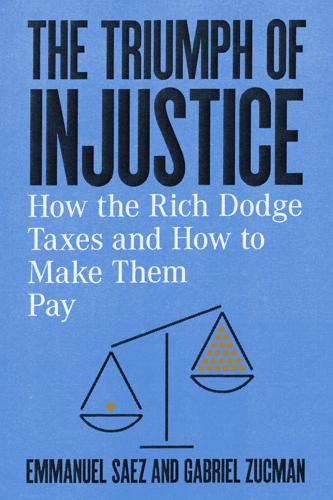
The Triumph of Injustice: How the Rich Dodge Taxes and How to Make Them Pay
by
Emmanuel Saez
and
Gabriel Zucman
Published 14 Oct 2019
To offset this pain, fighting climate change will require additional progressive taxes. Governments that forget this basic truth will learn it the hard way. Or take health care. In the United States, two of the most comprehensive efforts to introduce universal health insurance—the Clinton proposal of 1993, and the Vermont single-payer health care project of 2014—failed not for lack of general support, but largely because there was no palatable, fair funding solution. That’s what happens when only spending matters, and not how the money is raised. Often, no spending occurs. Since the failure of Clinton’s 1993 universal health care plan, thousands of Americans have died for lack of insurance;2 millions have lived with the fear of losing theirs.
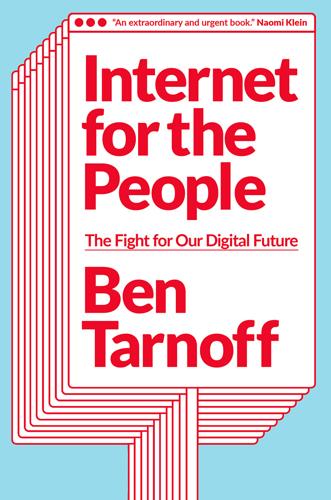
Internet for the People: The Fight for Our Digital Future
by
Ben Tarnoff
Published 13 Jun 2022
Meanwhile, polling suggests that public opinion has taken a turn: in 2019, only 50 percent of Americans said that tech companies have a positive effect on the United States, compared with 71 percent in 2015. This doesn’t mean that change is inevitable. Public opinion has no reliable relationship with public policy: plenty of ideas that are broadly popular, like single-payer health care, are nonstarters in a political system whose priorities are largely set by corporations and the rich. Nevertheless, internet reform has become something of a preoccupation in policymaking circles in recent years. Internet reform is by no means monolithic: the particular proposals and points of emphasis vary widely.
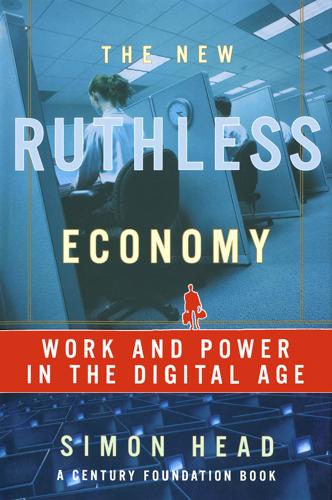
The New Ruthless Economy: Work & Power in the Digital Age
by
Simon Head
Published 14 Aug 2003
National Labor Relations Board, Decision and Order, Caterpillar Inc. v. UAW, Cases 33-CA-10414 and 33-CA-10415, December 10,1996, p. 2. 8. Translation from the Greek by Ludwig Edelstein, available at www.pbs. org/wgbh/nova/doctors/oath__classical.html. 9. See, for example, Dr. Marcia Angell, "Dispelling the Myths about Single-Payer Health Care," Physicians for a National Health Program (PNHP, undated); "National Health Insurance, Single Payer Fact Sheet"(PNHP, 2001); Dr. Gordon Schiff and Dr. David U. Himmelstein, "Questions and Answers about Single Payer National Health Insurance" (PNHP: 1996). Ad Hoc Committee to Defend Health Care, Cambridge, Mass., "For Our Patients, not for Profits, a Call to Action," JAMA 278 (21): 1733-38 (December 3, 1997); Dr.

Plenitude: The New Economics of True Wealth
by
Juliet B. Schor
Published 12 May 2010
The Social Security system, which has been a marvel of low bureaucratic costs and high popularity, succeeds in part because its coverage is so wide. When access to programs is restricted, the costs of maintaining the boundaries and ferreting out free riders can be high, and perverse incentives are introduced. In universal systems, these problems disappear. Single-payer health care systems, which include everyone, are much more cost-effective than private insurance. In the United States, the fraction of health care costs attributed to administration, rather than care, has been estimated to be as high as 31 percent. Second, costs can be kept low by avoiding private profit from essential services.
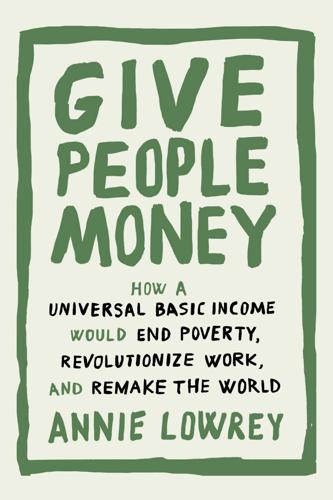
Give People Money
by
Annie Lowrey
Published 10 Jul 2018
the election of a black president: Ta-Nehisi Coates, “Fear of a Black President,” Atlantic, Sept. 2012. “key factor” associated with support for Trump: Sean McElwee and Jason McDaniel, “Economic Anxiety Didn’t Make People Vote Trump, Racism Did,” Nation, May 8, 2017. only for those he sees as deserving of them: Dylan Matthews, “Why the Alt-Right Loves Single-Payer Health Care,” Vox, Apr. 4, 2017. “Why Trump Must Champion Universal Healthcare”: Richard Spencer, “Why Trump Must Champion Universal Healthcare,” Altright.com, Mar. 23, 2017. pushing for a federal jobs guarantee: Neera Tanden, Carmel Martin, Marc Jarsulic, Brendan Duke, Ben Olinsky, Melissa Boteach, John Halpin, Ruy Teixeira, and Rob Griffin, “Toward a Marshall Plan for America: Rebuilding Our Towns, Cities, and the Middle Class” (Washington, DC: Center for American Progress, May 16, 2017).

The Smartphone Society
by
Nicole Aschoff
Donald Trump also appealed to people who were on the losing end of neoliberalism, and unlike virtually any Republicans before him, Trump also relied heavily on small donors. But unlike Sanders, who was coalescing a radically progressive program, Trump was pulling together threads from the right. While Sanders talked about single-payer health care and free higher education Trump fed his networks stories of Mexican rapists and nostalgia for a time when America was “great.” Trumpism, which political scientist Cas Mudde describes as a “radical right combination of authoritarianism, nativism and populism,” can be traced back to a response to the 2008 crisis, but one very different from the response on the left.44 After the crisis anger over debt, precarity, the bailout, job loss, and alienation was also articulated through right-wing voices such as Rick Santelli, now an editor for CNBC.
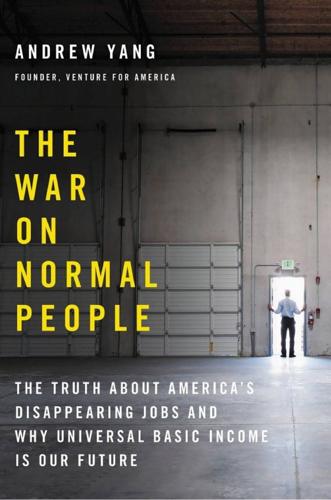
The War on Normal People: The Truth About America's Disappearing Jobs and Why Universal Basic Income Is Our Future
by
Andrew Yang
Published 2 Apr 2018
Technology that should decrease costs has been kept at the door, because for most actors in the system, the goal is to increase revenue and profitability. The more services, tests, appointments, procedures, and expensive gadgets you use, the better. The system rewards activity and output over health improvements and outcomes. Changing these incentives is key. The most direct way to do so would be to move toward a single-payer health care system, in which the government both guarantees health care for all and negotiates fixed prices. Medicare—the government-provided health care program for Americans 65 and over—essentially serves this role for senior citizens and has successfully driven down costs and provided quality care for tens of millions.
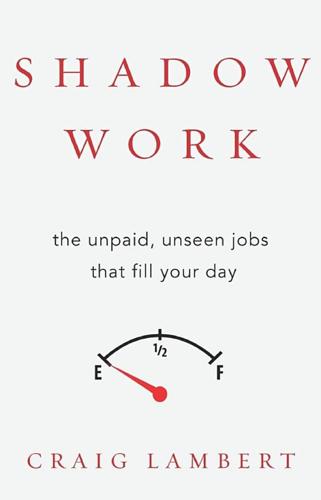
Shadow Work: The Unpaid, Unseen Jobs That Fill Your Day
by
Craig Lambert
Published 30 Apr 2015
Healthcare expenses, in particular, have driven up this line item. In the United States, healthcare has become an enormous, seemingly uncontrollable sector, swelling relentlessly and growing far faster than the rest of the economy—much as cancer grows, without relationship to neighboring cells. Short of a seismic change such as universal single-payer health insurance with price controls on drugs and procedures, the upward pressure on employee benefits will continue. The upshot is a strong incentive to replace full-time employees with part-time, outsourced, overseas, or contract workers, who receive no benefits. Better yet, simply lay people off—or hand off jobs to customers as shadow work.
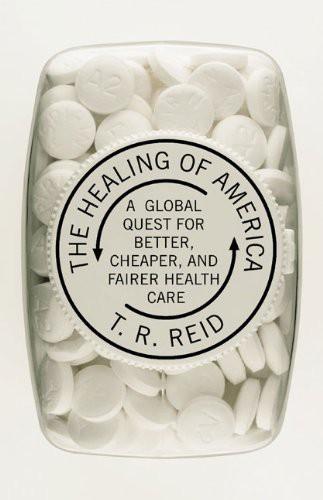
The Healing of America: A Global Quest for Better, Cheaper, and Fairer Health Care
by
T. R. Reid
Published 15 Aug 2009
1 “I felt that no boy should have to depend either for his leg or his life upon the ability of parents to raise enough money,” Douglas wrote in his memoir.“I came to believe that people should be able to get ... health services irrespective of their individual capacity to pay.”2 When he was elected premier (that is, governor) of the province of Saskatchewan in 1944, Douglas turned that passionate belief into a government-run, single-payer health care system for all of Saskatchewan’s 1 million residents. The program was so successful and so popular that residents of other provinces began demanding the same program. The federal government in Ottawa signed on; by 1961 everyone in Canada was covered by a taxpayer-funded hospital insurance program.
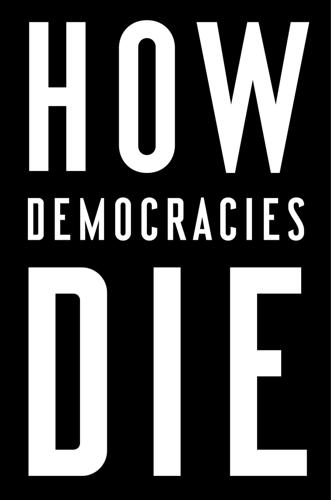
How Democracies Die
by
Steven Levitsky
and
Daniel Ziblatt
Published 16 Jan 2018
When major businesses join progressive boycotts, they often succeed. Building coalitions that extend beyond our natural allies is difficult. It requires a willingness to set aside, for the moment, issues we care deeply about. If progressives make positions on issues such as abortion rights or single-payer health care a “litmus test” for coalition membership, the chances for building a coalition that includes evangelicals and Republican business executives will be nil. We must lengthen our time horizons, swallow hard, and make tough concessions. This does not mean abandoning the causes that matter to us.
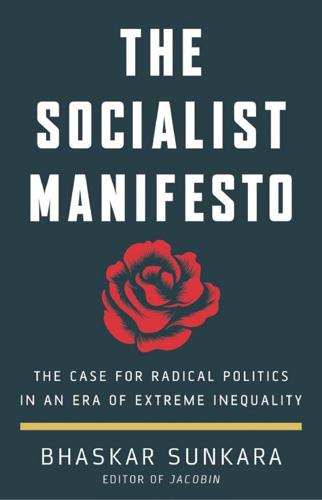
The Socialist Manifesto: The Case for Radical Politics in an Era of Extreme Inequality
by
Bhaskar Sunkara
Published 1 Feb 2019
When asked the same question in 2016, just 27 percent saw immigrants as a burden, and 63 percent thought immigration was a good thing.3 Even after being subjected to three years of attacks from both the Right and corporate Democrats, Bernie Sanders is among the most popular politicians in the United States. His central demands—a universal jobs program and single-payer health insurance—both enjoy substantial support among voters. Polls show that 52 percent want a jobs guarantee nationwide, with even higher favorability in poor states like Mississippi (72 percent). Medicare for All could be just as popular a platform plank: in April 2018 support for the measure crept above 50 percent.4 The challenge is to take these individual “policy preferences” and bundle them into a coherent politics, but this has been precisely the Sanders campaign’s breakthrough.

The Knowledge Illusion
by
Steven Sloman
Published 10 Feb 2017
We asked participants whether they supported or rejected various policies that were hot-button issues at the time (2012): Whether there should be a national flat tax Whether there should be a cap-and-trade program on carbon emissions Whether there should be unilateral sanctions on Iran Whether the retirement age for Social Security should be raised Whether there should be a single-payer health care system Whether there should be merit-based pay for teachers As in the standard procedure, we first asked people to rate their understanding of an issue on a scale of 1 to 7. Next we asked them to provide an explanation of all the effects that the policy would lead to. For instance, the instructions for the cap-and-trade issue read, “Please describe all the details you know about the impact of instituting a cap-and-trade system for carbon emissions, going from the first step to the last, and providing the causal connection between the steps.”
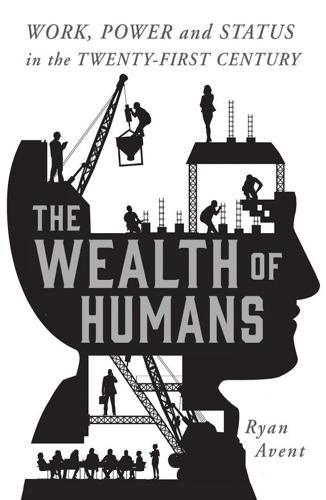
The Wealth of Humans: Work, Power, and Status in the Twenty-First Century
by
Ryan Avent
Published 20 Sep 2016
The European right is pushing, in some cases, for greater national sovereignty (or even an exit from the European Union) and tighter controls on immigration. They are not yet mounting a broad assault on liberalism and democracy – though that may come. The left, meanwhile, is advocating an end to austerity policies in some cases and expansions to the welfare state in others. Sanders campaigned on free college tuition and the creation of a single-payer health insurance system. They are not yet running on confiscatory taxation and nationalization of the means of production. Both political extremes might never have the opportunity to pursue their aims to their logical conclusion. But radicalism will become an increasingly real and powerful force in global politics until governments begin answering the difficult questions posed by the digital revolution.

American Marxism
by
Mark R. Levin
Published 12 Jul 2021
Nor does it include upkeep.”68 In addition, “the Green New Deal also aspires to provide jobs guarantees at a ‘living wage.’ A government assessment of a similar proposal by Sen. Cory Booker (D-NJ) puts the cost of such a program at $543 billion in its first year. Though the costs thereafter would fall, the cumulative expense over ten years would come to some $2.5 trillion. The goal of developing a universal, single payer health-care system would, according to an MIT-Amherst study of a similar plan put forward by Senator Bernie Sanders, come to about $1.4 trillion a year.”69 “Just these six of AOC’s long list of aspirations,” states Ezrati, “would then roughly cost some $2.5 trillion a year. Since Washington’s 2018 budget put spending at $4.5 trillion, the Deal would effectively increase federal spending by a touch over half again.
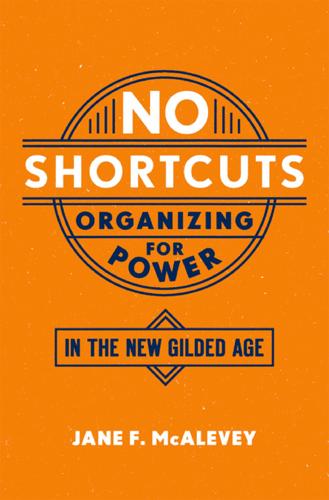
No Shortcuts: Organizing for Power in the New Gilded Age
by
Jane F. McAlevey
Published 14 Apr 2016
Movement actors can and must reasonably predict the concession costs in advance; otherwise, they enter the fight without knowing which strategies to deploy. As Luders says, different economic actors are unequally vulnerable and concession costs are not static—they are variable and contingent on the ability of actors to force disruption costs. If, for example, the movement actors’ demand is for single-payer health care, activists must understand what it will cost the health care industrial complex to concede that demand. Without that understanding they will not know the magnitude of the fight on their hands, and might adopt the wrong strategy, applying an insufficient mobilizing approach rather than an all-out organizing approach.
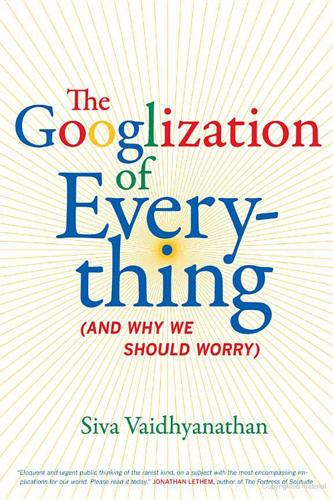
The Googlization of Everything:
by
Siva Vaidhyanathan
Published 1 Jan 2010
Public failure has had two perverse effects on politics and policy. First, it has corroded faith in state institutions, effectively precluding arguments for their extension or preservation (in the United States, anyway). For example, President Barack Obama apparently considered that proposing a Canadian-style, single-payer health-care system would be completely unpalatable to the American public and powerful healthcare interests. So he quickly and publicly dismissed the idea early in 2009, reversing years of endorsing such a system’s proven success in Canada and many other places.62 In the United States any suggestion of regulation or public investment must be couched in the language of the market if it is to be taken seriously.
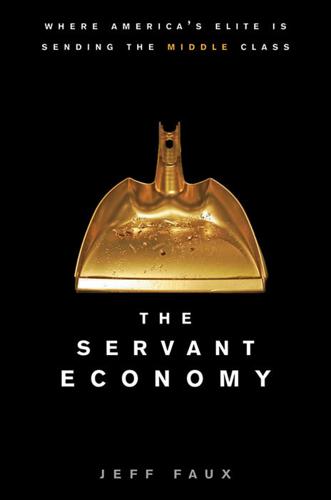
Servant Economy: Where America's Elite Is Sending the Middle Class
by
Jeff Faux
Published 16 May 2012
There is simply not enough space now in our political discourse for the governing class to consider policy solutions that reach to the level of the problems that it is are supposed to solve. Serious regulation of Wall Street is off the table. Abandoning the role of world policeman is off the table. In the debate over health care, a single-payer health care system like Canada’s is off the table. Industrial policies and trade policies are off the table. Strengthening the bargaining position of workers is off the table. Government planning to build a sustainable economy by moving off the sandpile of consumption and debt is well off the table.

Tightrope: Americans Reaching for Hope
by
Nicholas D. Kristof
and
Sheryl Wudunn
Published 14 Jan 2020
Members of Congress opposed to a public option don’t seem to object to the government covering the cost of medical services for themselves: in addition to receiving a 72 percent subsidy—paid by taxpayers—on premiums for a gold-level ACA plan, they can use the navy-run Office of the Attending Physician and get free outpatient services at military facilities in the Washington area. The reason we have a single-payer health-care system for the elderly (Medicare) but not for children is simple: seniors vote, and children don’t. So while American children die at 55 percent higher rates than children in other advanced countries, Americans who make it to age sixty-five and qualify for Medicare then have a remaining life expectancy similar to that of our peer countries.

Forward: Notes on the Future of Our Democracy
by
Andrew Yang
Published 15 Nov 2021
Over time a VAT will be crucial to capture some of the gains of automation which typically accrue to sophisticated private firms. My platform revolves around 3 key proposals: Universal Basic Income (“the Freedom Dividend”) Evolution to the next stage of capitalism, “Human Capitalism,” geared toward optimizing around human well-being in addition to GDP Single-payer health care—necessary in the aftermath of job reduction You may not agree with me on every front. But I hope that you agree that we need to elevate meaningful solutions. I also hope that you’re excited to have me as a spokesperson for new approaches. The campaign is coming together beautifully; I’ve found the best sign that you’re going to succeed is when amazing people want to come work with you.

Golden Gates: Fighting for Housing in America
by
Conor Dougherty
Published 18 Feb 2020
Moderate was a term that meant a lot in San Francisco and absolutely nothing outside it. When it came to national issues, most of the city was some version of what Scott Wiener was: a very liberal Democrat who received 100 percent ratings on union scorecards and was in favor of gun control, higher income taxes, legalized marijuana, single-payer health care, state-sponsored abortions, state-sponsored gender confirmation surgery, windmills, and fracking bans. But none of that really mattered in local elections, first because there was no point of differentiation and second because city politics revolve around neighborhood arguments that have little to do with the federal government.
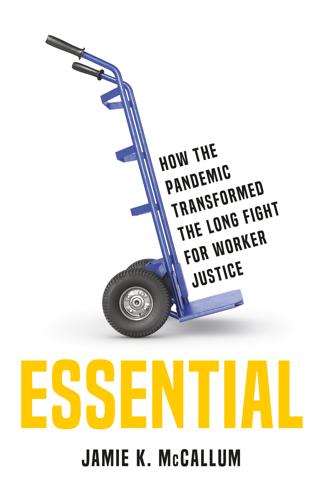
Essential: How the Pandemic Transformed the Long Fight for Worker Justice
by
Jamie K. McCallum
Published 15 Nov 2022
Tim Arango, “Ady Barkan Won’t Let Dying Stop His Activism,” New York Times, September 19, 2019, www.nytimes.com/2019/09/19/us/ady-barkan-activist-medicare.html. 7. Michelle Chen, “There Is No ‘Nursing Shortage.’ There’s Just a Good Nursing Job Shortage,” The Nation, August 7, 2019, www.thenation.com/article/archive/health-care-medicare-nurses/; “Union Endorsers,” Unions for Single Payer Health Care, https://unionsforsinglepayer.org/union_endorsers/. 8. Jason Lemon, “Medicare for All Would Save $450 Billion Annually While Preventing 68,000 Deaths, New Study Shows,” Newsweek, February 18, 2020, www.newsweek.com/medicare-all-would-save-450-billion-annually-while-preventing-68000-deaths-new-study-shows-1487862. 9.

The Boy Who Could Change the World: The Writings of Aaron Swartz
by
Aaron Swartz
and
Lawrence Lessig
Published 5 Jan 2016
Unless politics is a tradition in your family, your odds of getting elected to federal office are slim. And unless you’re a white male lawyer, you rarely get to vote for someone like yourself in a national race. Nor, in reality, do we have an opportunity to choose policy positions: no major candidates support important proposals that most voters agree with, like single-payer health care. Instead, national elections have been boiled down to simple binary choices, which advertising men and public relations teams reduce to pure emotions: Fear. (A bear prowls through the woods.) Hope. (The sun rises over a hill.) Vote Smith. Or maybe Jones. Nor does the major media elevate the level of debate.
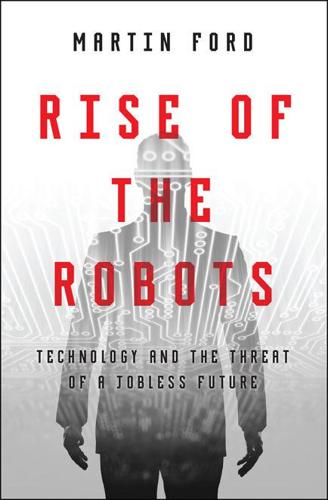
Rise of the Robots: Technology and the Threat of a Jobless Future
by
Martin Ford
Published 4 May 2015
See skill biased technological change (SBTC) Schlosser, Eric, 210 Schmidt, Michael, 108, 109 Schwarzenegger, Arnold, 22 S-curves, 66–67, 68, 69, 70–71, 250 secular stagnation, 274n self-driving cars, See autonomous cars Selingo, Jeffrey J., 140, 141 Semiconductor Industry Association, 80 service sector, 12–20 The Shallows (Carr), 254 Shang-Jin Wei, 225 Silvercar, 20 Simonyi, Charles, 71 single-payer health care system, 165–167, 169 The Singularity, 233–238, 248 The Singularity Is Near (Kurzweil), 234 Singularity University, 234 Siu, Henry E., 49, 50 skill biased technological change (SBTC), 48 skills, acquisition of by computers, xv–xvi Skipper, John, 201 “Skynet,” 22 Slate (magazine), 153 Smalley, Richard, 244–245 Smith, Adam, 73 Smith, Noah, 219–220, 273 Smith, Will, 111 social media response program, 93–94 social safety net, 278.

Flying Blind: The 737 MAX Tragedy and the Fall of Boeing
by
Peter Robison
Published 29 Nov 2021
(“He liked to be in charge,” said Peter McNerney, one of three younger brothers.) At Yale, McNerney pledged Delta Kappa Epsilon, one of the oldest fraternities in the country, and was initiated by George W. Bush. Leadership was practically in his blood. His father, Walter James McNerney Sr., ran the giant insurer Blue Cross and was an early advocate of a single-payer health-care system for elderly Americans, Medicare, enacted in 1965. The senior McNerney went on to advise Richard Nixon on health policy. He led the Task Force on Medicaid that reached a strikingly progressive conclusion in 1970 about coverage for poor Americans: “A sizable unmet need for health service is a disgrace and cannot be tolerated in an affluent society,” said the report from the “McNerney task force,” as it was known.
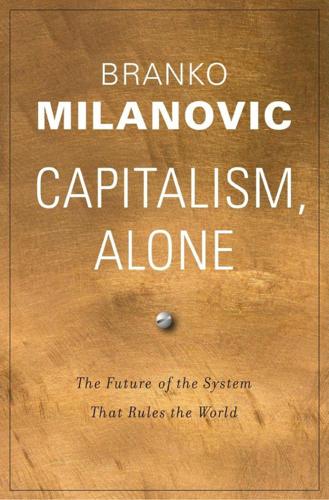
Capitalism, Alone: The Future of the System That Rules the World
by
Branko Milanovic
Published 23 Sep 2019
Daniel Markovits, “A New Aristocracy,” Yale Law School Commencement Address, May 2015, https://law.yale.edu/system/files/area/department/studentaffairs/document/markovitscommencementrev.pdf (italics in the original). 23. One possible counterargument is to see forces of decommodification reflected in the demand for open-source software and free (single-payer) health care in the United States, trends that may become more important in the future. It is a possibility: nobody knows what will happen in the future. However, I think that the arguments presented here, based on the internal logic of the system (not least on the set of values it promotes), point in the opposite direction. 24.

How the World Works
by
Noam Chomsky
,
Arthur Naiman
and
David Barsamian
Published 13 Sep 2011
See also Soviet Union “reforms” in Serb conflict and after Soviet collapse Ryan, Randolph Sabra and Shatila (Lebanon) Sachs, Jeffrey Sadat, Anwar Saddam Hussein Sahoun, Mohammed Said, Edward on hypocrisy on Middle East PLO confronted by US-Israel policy opposed by Sakharov, Andrei Salinas Sanders, Bernie San Diego, skilled workers lacking in Sandinistas S&Ls San Jose Mercury News Santiago, Daniel São Paulo Sarajevo Saskatchewan Saudi Arabia Save the Children Schanberg, Sydney Scheiner, Charlie schools, underfunded Schor, Julie Schoultz, Lars Schultz, George Schurmann, Franz science and technology biotechnology interactive technology Pentagon as conduit for investment prisons and public funding for recruitment of scientists in India semiconductors telecommunications Scott, Peter Dale Second Amendment secret services, incompetence of Security Council resolutions (UN) “security zone,” self image Sematech consortium semiconductors Senate Foreign Relations Committee (US) Serbs service role of Third World countries sexism, class differences vs. Shabak Shamir, Yitzhak shantytowns Sharon, Ariel Shavit, Ari Sicily Sidon Siemens signs of progress (and not) “silent genocide” in Africa Silvers, Robert Simpson, Chris Singer, Daniel single-payer health-care plan Skidelsky, Robert slavery Slavs, conflicts between slums See also shantytowns “smash and grab,” Smith, Adam on British imperialism capitalism and on free markets and equality on India on mercantilist system socialist-anarchist tradition and on “vile maxim” of the “masters,” wealth vs. democracy and Smith Corona smoking and tobacco deaths due to expansion into foreign markets freedom and now lower-class social harm due to US tobacco exports war on drugs and SNCC social conditioning socialism doctrinal meaning of meaning of new opportunity for Soviet Union not example of socialist-anarchist tradition socially responsible investing Social Policy Social Security Social Security “reform,” social services Social Text Socrates Sokal, Allen Solarz, Steven Solow, Bob Somalia atrocities in Bosnia vs.
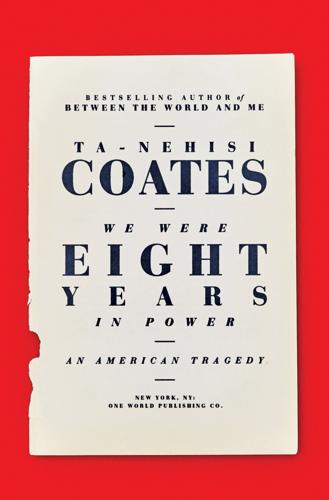
We Were Eight Years in Power: An American Tragedy
by
Ta-Nehisi Coates
Published 2 Oct 2017
And there can be no conflict between the naming of whiteness and the naming of the degradation brought about by an unrestrained capitalism, by the privileging of greed and the legal encouragement to hoarding and more elegant plunder. I have never seen a contradiction between calling for reparations and calling for a living wage, on calling for legitimate law enforcement and single-payer health care. They are related—but cannot stand in for one another. I see the fight against sexism, racism, poverty, and even war finding their union not in synonymity but in their ultimate goal—a world more humane. To Kenyatta, Tom, Nikola and Amelie, who went with me into the deep, and saw me back to shore ACKNOWLEDGMENTS This book was made possible by The Atlantic, which, from fact check to paycheck, supported me through these eight years.

Fire and Fury: Inside the Trump White House
by
Michael Wolff
Published 5 Jan 2018
But almost immediately upon arriving and paying his $150 registration fee, he had attracted first one reporter and then a growing circle, a spontaneous press scrum, and he responded by giving an ad hoc news conference. Like Yiannopoulos, and in many ways like Trump and Bannon, Spencer helped frame the ironies of the modern conservative movement. He was a racist but hardly a conservative—he doggedly supported single-payer health care, for instance. And the attention he received was somehow less a credit to conservatism than another effort by the liberal media to smear conservatism. Hence, as the scrum around him increased to as many as thirty people, the CPAC irony police stepped in. “You’re not welcome on the property,” announced one of the security guards.

American Foundations: An Investigative History
by
Mark Dowie
Published 3 Oct 2009
All other healing modalities were marginalized as germ theory and the allopathic model of medicine came to dominate western health care.3 In the first century of American health philanthropy almost everything was tried and funded. Only two areas have remained unchallenged by foundations. One is the preeminent role of hospitals in health care; the other is the resistance to a single-payer health care system or national health plan. While every other country in the developed world has found ways to assure some health care to most of its citizens, about 44 million Americans remain uncovered, languishing helplessly between the extremely poor and aged who are covered by Medicare and Medicaid and those who are either employed with generous benefits or affluent enough to buy their own costly health insurance.

Democracy Incorporated
by
Sheldon S. Wolin
Published 7 Apr 2008
It seeks to redress a situation or condition without significantly modifying power relationships (e.g., a “tax break for the middle class”). The other, paradigmatic or strategic change, institutes not only a new program but recasts basic power relationships: it reforms, empowers, sets a new direction (e.g., a single-payer health care system). Democracy Incorporated describes the paradigmatic change represented by the amalgamation of state and corporate power. Sometimes a paradigmatic change takes the form of an attack on an entrenched or longstanding status quo—for example, reducing the power of the antebellum plantation owners.
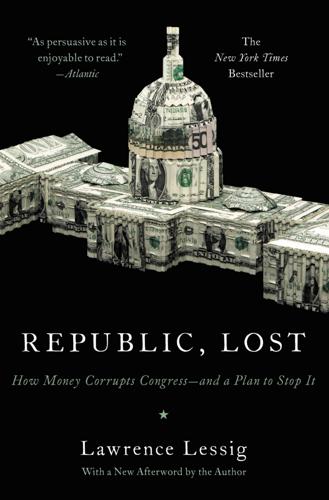
Republic, Lost: How Money Corrupts Congress--And a Plan to Stop It
by
Lawrence Lessig
Published 4 Oct 2011
The prevention of governmental action, and this is the aim of many lobbies, is relatively easy under these circumstances.”86 “Most issues,” Baumgartner and his colleagues find, “do not reach those final stages and most are not highly publicized, even within the Beltway.”87 That means, again, the opportunity for invisible influence is great. Senator Larry Pressler (R-S.D.; 1979–1997) describes a particular example, drawn from the recent battle over health care: There should have been an up or down vote on [single-payer health insurance], or a vote at least on cloture. There was neither. For some reason, it just went away. Barack Obama abandoned it completely, although he had said he was for it. Some Republicans are for it—I was for it way back and Nixon was for it… on a much more significant basis. Bob Packwood had a plan for it.
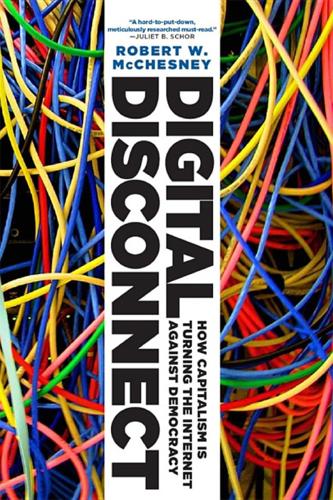
Digital Disconnect: How Capitalism Is Turning the Internet Against Democracy
by
Robert W. McChesney
Published 5 Mar 2013
Josh Smith, “FCC Chairman Lobbies Pentagon for More Spectrum,” National Journal online, Aug. 3, 2012, techdailydose.nationaljournal.com/2012/08/fcc-chairman-lobbies-pentagon.php. 108. E-mail from S. Derek Turner, research director for Free Press, to the author, May 2, 2012. 109. Lynn Sweet, “Obama on Why He Is Not for Single Payer Health Insurance: New Mexico Town Hall Transcript,” Chicago Sun Times, May 14, 2009, http://blogs.suntimes.com/sweet/2009/05/obama_on_why_he_is_not_for_sin.html. 110. Al Gore, “Networking the Future: We Need a National ‘Superhighway’ for Computer Information,” Washington Post, July 15, 1990, B3. 111.

San Fransicko: Why Progressives Ruin Cities
by
Michael Shellenberger
Published 11 Oct 2021
“The Salvation Army has detox beds available,” he said, “but the city actually discourages you from going to the Salvation Army because it’s a faith-based organization. So there’s really nowhere to go for treatment.”22 Is the reason for the lack of drug treatment that the United States does not have a single-payer health-care system like Medicare for All, or the Canadian system? There may be good reasons for such a system. But Canada has a single-payer system, and yet the West Coast province of British Columbia has seen overdose deaths increase 74 percent, from 984 deaths in 2019 to 1,716 deaths in 2020.23 Like San Francisco, Seattle, and Los Angeles, British Columbia’s most populous city, Vancouver, embraced decriminalization, harm reduction, and Housing First.
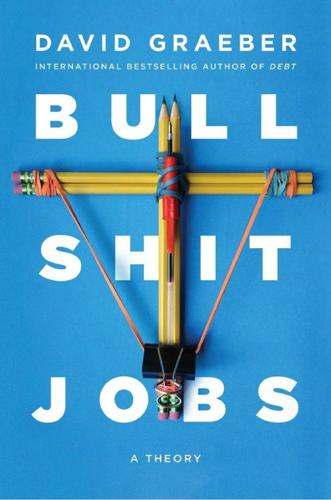
Bullshit Jobs: A Theory
by
David Graeber
Published 14 May 2018
If that seems a daring claim, even conspiracy talk, consider the following quote, from an interview with then US president Barack Obama about some of the reasons why he bucked the preferences of the electorate and insisted on maintaining a private, for-profit health insurance system in America: “I don’t think in ideological terms. I never have,” Obama said, continuing on the health care theme. “Everybody who supports single-payer health care says, ‘Look at all this money we would be saving from insurance and paperwork.’ That represents one million, two million, three million jobs [filled by] people who are working at Blue Cross Blue Shield or Kaiser or other places. What are we doing with them? Where are we employing them?”
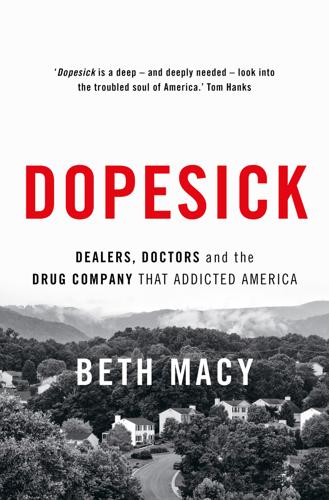
Dopesick: Dealers, Doctors and the Drug Company That Addicted America
by
Beth Macy
Published 4 Mar 2019
Having lost scores of people to opioid overdose, including his mom and grandmother, he hadn’t used illicit drugs in more than three years. “I had put off going to RAM for years because I figured they’d make you feel like shit about yourself, like ninety percent of the social service people do,” he said. “But everyone was just…so…kind.” If there’s an argument to be made for a single-payer health care system with mental health and substance abuse coverage, this is the lumpy ground on which to make it, a gravel lot in which upward of three thousand Appalachians camp out for days in 100-degree heat to be treated in exam rooms cobbled together from bedsheets and clothespins. Behind a banner for the virginia-kentucky district fair & horse show, patients wait in bleachers while volunteers pass out bottles of water as they triage them to pop-up clinics for medical, dental, and eye care.
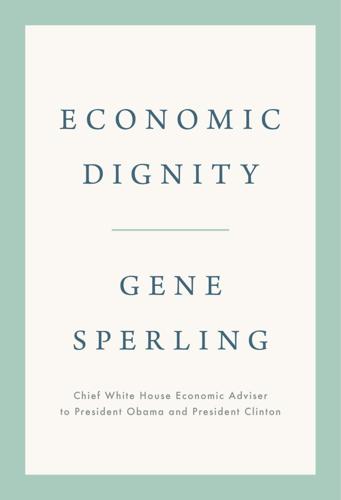
Economic Dignity
by
Gene Sperling
Published 14 Sep 2020
See workplace sexual harassment Shapiro, Carl, 115 Shared Security System, 193–94 shareholder primacy, 118–22 sheepherders, 261–62 Shell, Ellen Ruppel, 275–76 Sherman Act of 1890, 23 Shierholz, Heidi, 265 Shih, Willy, 140 Sides, John, 292 Silva, Jennifer, 287 “silver or lead,” 72, 116, 117 single-payer health care, 100–101, 102–3, 106 Sitaraman, Ganesh, 45–46, 104–5 Skills For Chicagoland’s Future, 213–14 skills and labor markets, 269–71, 281–84 skills gap debate, 270–71 skills training, 281–84 slavery, 18, 63, 67, 82–83, 260–61, 284, 293 Smith, Adam, 107, 173 Smith, Jeanetta, 93–94 SNAP (Supplemental Nutrition Assistance Program), 91, 92–93, 187–88, 190, 329n Snellman, Kaisa, 287 Snyder, Jack, 294 Social Darwinism, 90–91 socialism, 103, 106 Social Security, 23–24, 159–60, 161, 174, 188, 189, 200–201 Social Security Act of 1935, 24, 73 Social Security Caregiver Credit Act of 2019, 328n Social Security Disability Insurance (SSDI), 91, 93–94, 198–200, 336n Sparling, Dara and Rob, 195–96 Sperling, Doris, 149, 216 Sperling, Larry, 31 Sperling, Rick, 217, 287 Sprung-Keyser, Ben, 285 Stack-Martinez, Rebecca, 252 “stakeholder test,” 119–20 stakeholder theory, 119, 281 Standard Oil, 71–72 Stanton, Elizabeth Cady, 15 static economies, 130–31 status quo policies, 8, 131–34 stealing tips, 264–65 Steinbaum, Marshall, 278 STEM (Science, Technology, Engineering and Mathematics) majors, 280–81 Stephanopoulos, George, 239 Stern, Andy, 187, 205 Stewart, Potter, 11 Stiglitz, Joseph, 8, 104, 136, 146, 247 Stout, Lynn, 119 Strine, Leo, 119–20 student loan debt, 97–98, 274–75, 276 subprime mortgage crisis, 109, 112 Summers, Lawrence, 220–21 summer school activities, 286–88 Sunstein, Cass, 135, 158 Supplemental Nutrition Assistance Program.

Coders: The Making of a New Tribe and the Remaking of the World
by
Clive Thompson
Published 26 Mar 2019
The study also found that the tech folks were extremely globalist in their worldview, with 44 percent, more than any other group, agreeing that “trade policy should prioritize the wellbeing of those abroad instead of Americans.” And they supported many classically redistributionist tax-and-spend policies: 82 percent supported single-payer health care even if it meant raising taxes, and 75 percent supported spending federal money on programs that benefited only the poor. Nearly all supported same-sex marriage, and 82 percent favored gun control. “In other words,” as the researchers concluded in their paper, “technology entrepreneurs are not libertarians.”

Strange Rebels: 1979 and the Birth of the 21st Century
by
Christian Caryl
Published 30 Oct 2012
It took the Labour government just a few short years to implement a raft of social welfare policies that transformed British society. The Labourites established child subsidies, expanded a range of social insurance programs, built vast new tracts of public housing, imposed far-reaching rent controls, and launched a comprehensive program of state-run, single-payer health care (the National Health Service). It all proved enormously popular. Labour’s economic policies were even more far-reaching. “It is doubtful whether we have ever, except in war, used the whole of our productive capacity,” the Labour election manifesto proclaimed. “This must be corrected.” Attlee and his cabinet set out to do this through a series of measures that transformed British capitalism.

The Unwinding: An Inner History of the New America
by
George Packer
Published 4 Mar 2014
She was twenty when Obama emerged in the 2008 campaign. She thought it would be awesome to have a black man as president, but she wondered if he’d turn out to be as progressive as Hillary—he knew how to play to both sides. Then, suddenly, it began to feel like a popular movement was rising, for things like single-payer health care, and if Obama was the reason for that movement, she was going to be for him. When the Wall Street crisis hit right before the election, she thought, “This is it, the financial system is coming to an end.” She expected a return to the fifties and sixties, harsh regulations and a blue-collar economy, but without the bigotry (because the American dream in those days didn’t make room for people like her and her mother).